Protect Your Plumbing This Holiday Season!
 Ahh! The Holidays are nearly here! We’ve only got 23 days until Christmas, 20 days until Hanukkah, and 24 days until Kwanzaa! Before you know it, you’ll be gathering around the table with friends and family, opening lots of presents, and of course, regifting some of those presents.
Ahh! The Holidays are nearly here! We’ve only got 23 days until Christmas, 20 days until Hanukkah, and 24 days until Kwanzaa! Before you know it, you’ll be gathering around the table with friends and family, opening lots of presents, and of course, regifting some of those presents.
Of course, all this excitement can take quite a toll on your plumbing system, so it is important that you do everything you can to protect it. Luckily for you, we have given you some tips down below on how to do this. All you’ve got to do is keep reading below to find out more (and as always, remember to call our team when you need a Sanford, FL plumber!
Big Meals Spell Big Clogs!
You know how you feel after a large holiday meal– full, bloated, and sleepy! Well, your plumbing system can sort of feel the same way. You see, one of the most common plumbing problems we get called for during this time of the year is kitchen sink clogs, and there are a number of reasons why.
Certain food items, for example, make their way into drains (even though they definitely shouldn’t!) This includes celery stalks, corn husks, potato skins, and hard foods such as fruit pits, and of course, FOG (fats, oils, and grease)—these should all be dumped in the trash rather than into your sink drain.
Keep an Eye on Your Toilet!
Your bathroom sees a lot of traffic during the Holidays, and with all this use comes an increased chance for something to go wrong. All it takes is one too many sheets of toilet paper or one kid dropping their favorite toy into the bowl and BAM, you’ve got a plumbing emergency on your hands!
All you can do is keep on eye on your bathroom plumbing system and remember to call for repairs at the first sign of trouble. Trust us — you don’t want to wait!
Your Water Heater is at Risk, Too!
Before your beloved guests start arriving for the Holidays, it is best that you schedule a water heater tune-up! Surely, you want to make certain that your hot water heater is fully equipped to keep up with your hot water demands (trust us, you don’t want to start any family drama!)
In fact, we think it’s best that you schedule annual maintenance for your entire plumbing system — it’s the best way to prevent repairs keep your system running as efficiently as possible for as long as possible!
Don’t Hesitate to Call in a Professional
If you run into any plumbing problems this holiday season, do not hesitate to call in a professional plumber for help. Trust us, only a professional has the tools, training, and expertise to get your system back up and running in as little time as possible. When it comes to your plumbing system, you don’t want to take any risks!
This post first appeared on https://www.modernpi.com
 A clog can appear in a toilet, sink, or shower for a number of reasons. It may have resulted from a recent event, like placing something in the toilet that should’ve been placed in the trash. The problem may have been building for some time. For example, it may have been taking longer for a tub to empty. Plumbing problems don’t have a schedule and need immediate attention. Call one of the best
A clog can appear in a toilet, sink, or shower for a number of reasons. It may have resulted from a recent event, like placing something in the toilet that should’ve been placed in the trash. The problem may have been building for some time. For example, it may have been taking longer for a tub to empty. Plumbing problems don’t have a schedule and need immediate attention. Call one of the best  Prevention
Prevention
 This isn’t something you want to see: a reddish or brownish discoloration coming from the taps in your house. Something isn’t right if you can’t get clear, non-cloudy water in your house. But what?
This isn’t something you want to see: a reddish or brownish discoloration coming from the taps in your house. Something isn’t right if you can’t get clear, non-cloudy water in your house. But what?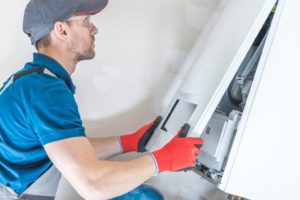
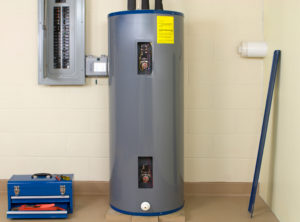
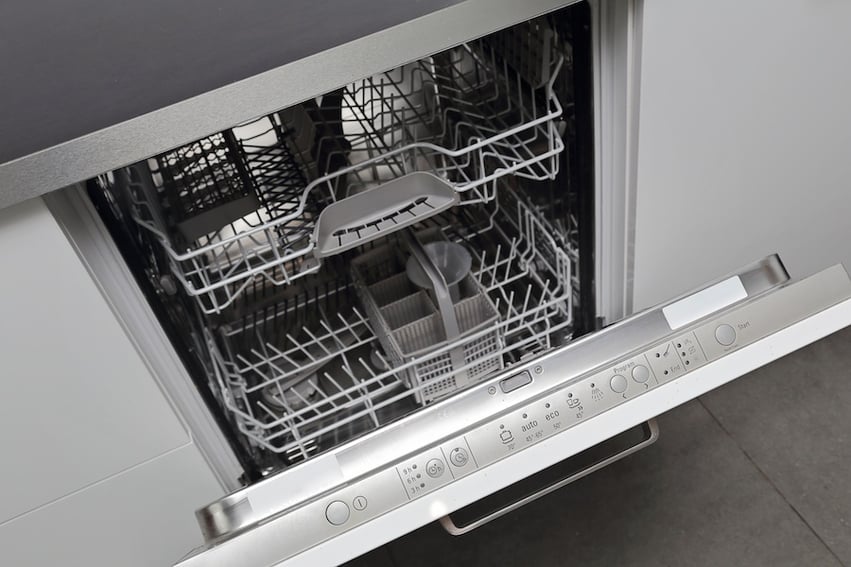
 There is really nothing quite worse than stepping into a cold shower on a chilly winter morning… See, your hot water heater is incredibly important to your comfort, and when something goes wrong with it, you are bound to notice!
There is really nothing quite worse than stepping into a cold shower on a chilly winter morning… See, your hot water heater is incredibly important to your comfort, and when something goes wrong with it, you are bound to notice!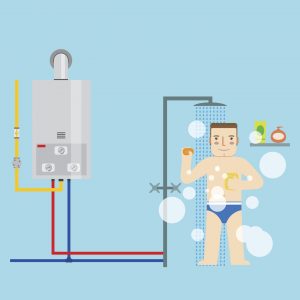 We know, homeowners rarely think about their water heaters. Except on the odd occasion when you’re having family over and all of a sudden your showers and sinks are all spraying out cold water and there’s nothing you can do about it. Well, what if we told you that there’s a new, technological solution to that problem?
We know, homeowners rarely think about their water heaters. Except on the odd occasion when you’re having family over and all of a sudden your showers and sinks are all spraying out cold water and there’s nothing you can do about it. Well, what if we told you that there’s a new, technological solution to that problem? Given the sheer volume of do-it-yourself guides and tips available online, it can be tempting to think that every household project can be handled with a box of tools and a YouTube video. While there are plenty of DIYs that are absolutely feasible, such as building a birdhouse, refinishing a table, or creating your own ornaments, there are some jobs that are best left to the professionals. The technical know-how, experience, and training necessary to handle any HVAC system isn’t something you can readily acquire from a few pictures and step-by-step instructions in a blog. The truth is that heating repair is always best performed by someone with the appropriate expertise. In fact, attempting a DIY HVAC repair could be hazardous both to you and your equipment.
Given the sheer volume of do-it-yourself guides and tips available online, it can be tempting to think that every household project can be handled with a box of tools and a YouTube video. While there are plenty of DIYs that are absolutely feasible, such as building a birdhouse, refinishing a table, or creating your own ornaments, there are some jobs that are best left to the professionals. The technical know-how, experience, and training necessary to handle any HVAC system isn’t something you can readily acquire from a few pictures and step-by-step instructions in a blog. The truth is that heating repair is always best performed by someone with the appropriate expertise. In fact, attempting a DIY HVAC repair could be hazardous both to you and your equipment. When it comes to complex equipment and systems, small issues can easily transform into major problems. You’ve probably already heard that it’s a good idea to get your heater or conditioner fixed as soon as you know it needs it. Waiting could easily allow whatever is wrong to become worse. However, attempting to repair it yourself could be substantially worse. It’s certainly not a bad idea to learn about your HVAC system, and curiosity is certainly understood. Unfortunately, passion isn’t the same thing as skill. You shouldn’t risk damaging your HVAC system as part of a learning exercise. If you have questions, you should ask the technician.
When it comes to complex equipment and systems, small issues can easily transform into major problems. You’ve probably already heard that it’s a good idea to get your heater or conditioner fixed as soon as you know it needs it. Waiting could easily allow whatever is wrong to become worse. However, attempting to repair it yourself could be substantially worse. It’s certainly not a bad idea to learn about your HVAC system, and curiosity is certainly understood. Unfortunately, passion isn’t the same thing as skill. You shouldn’t risk damaging your HVAC system as part of a learning exercise. If you have questions, you should ask the technician.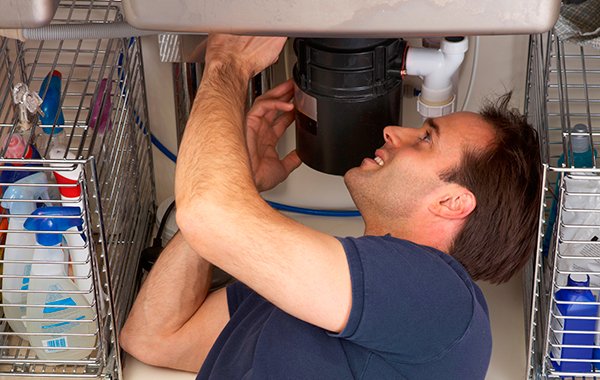 People often ask us, “What are the major causes for drain clogs? How can we prevent future clogs?” Keeping your drains freely flowing and in excellent condition should always be a priority in a Florida house. Messy floor leaks, costly repairs, yard flooding and just plain general inconvenience are the prices to pay for negligence on this front, so please inspect for the following immediately after any suspected drainage issues:
People often ask us, “What are the major causes for drain clogs? How can we prevent future clogs?” Keeping your drains freely flowing and in excellent condition should always be a priority in a Florida house. Messy floor leaks, costly repairs, yard flooding and just plain general inconvenience are the prices to pay for negligence on this front, so please inspect for the following immediately after any suspected drainage issues: